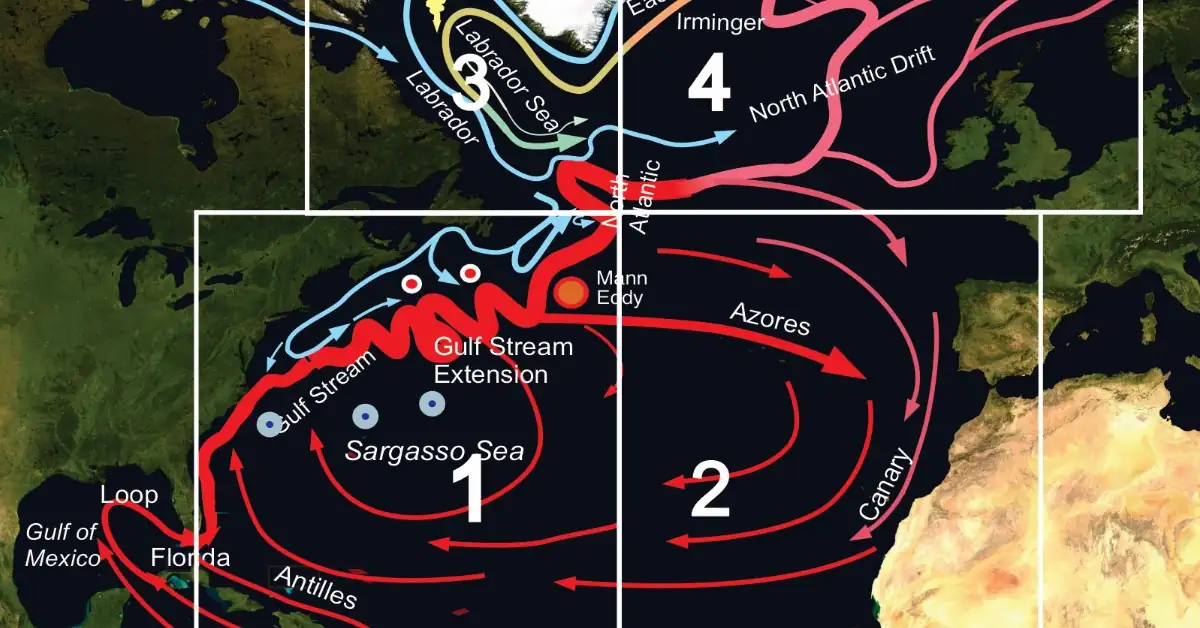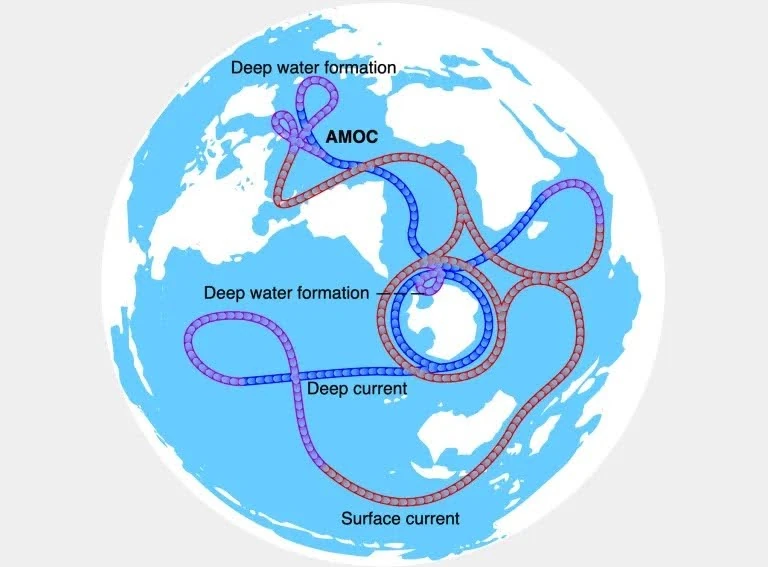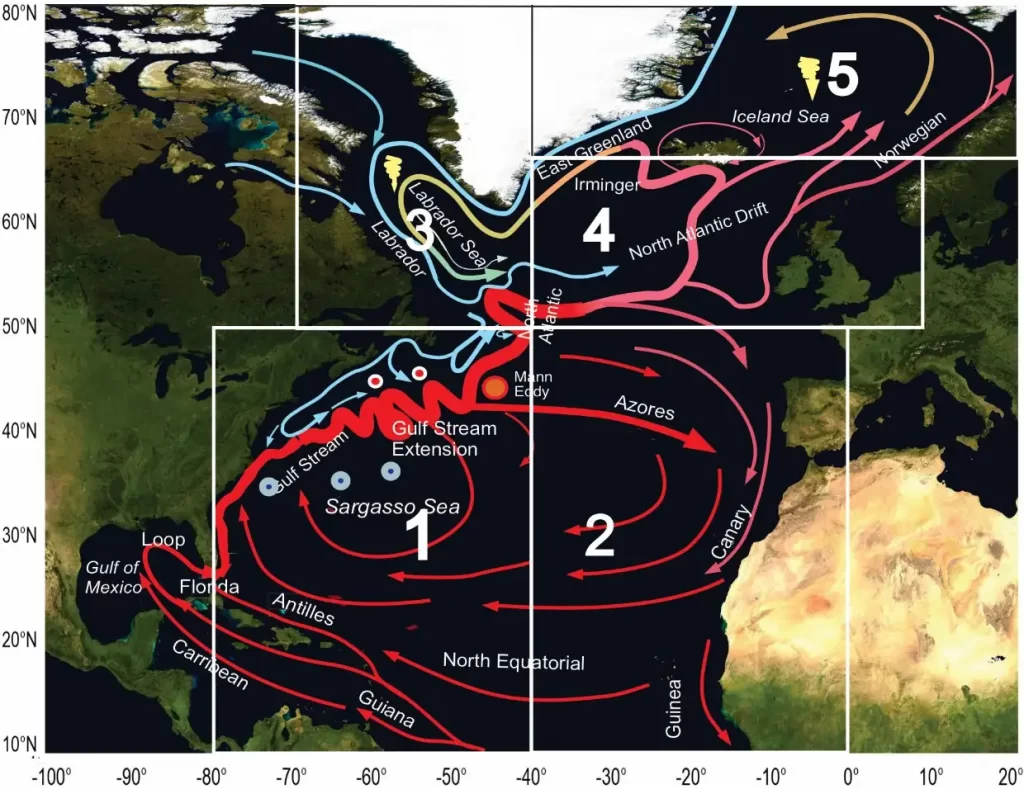NCEI scientists warn of weakening Atlantic Ocean currents, profound implications on global climate patterns

Scientists from the National Centers for Environmental Information (NCEI) and the University of Maryland have provided evidence of a significant slowdown in the Atlantic Meridional Overturning Circulation (AMOC), a key climate regulator. Published in Frontiers in Marine Science, the research utilized over six decades of oceanic data to track the health of this vital oceanic component. This slowdown, observed primarily in the last two decades, could have profound implications on global climate patterns.
The Atlantic Meridional Overturning Circulation (AMOC), an essential driver of the global climate system, has shown a significant reduction in strength and velocity over recent decades.
This system, which includes major currents such as the Gulf Stream, plays a critical role in redistributing heat across the Earth by moving warm water from the tropics northward and returning colder water to the south. A robust AMOC ensures moderate climate conditions across Europe and North America, while its weakening could lead to extreme weather patterns, altered precipitation rates, and increased coastal sea levels.

A collaborative study conducted by researchers from the National Centers for Environmental Information (NCEI) and the University of Maryland has revealed that the AMOC has been diminishing in strength since the mid-1990s.
This revelation comes from an analysis of extensive oceanic records from 1955 through 2019, encompassing data on temperature, salinity, and density of the North Atlantic waters. These findings have been synthesized from the World Ocean Database and Regional Ocean Climatology projects, ensuring high-resolution insights into the ocean’s changing conditions.
Particularly notable is the detailed analysis of the Northwest Atlantic Regional Climatology, which indicated that the Gulf Stream system—part of the AMOC—has undergone significant decadal changes superimposed on seasonal and mesoscale variability. Despite these changes, the Gulf Stream has shown signs of resilience, maintaining its strength even as other components of the AMOC system have weakened.

However, there is another aspect of the state of resilience of the Gulf Stream system.
“The last decade witnessed an “abnormal” behavior of the Gulf Stream, which did not occur during the previous 50 years,” authors say in the study. It manifested in accelerated warming of the Slope Water over the past decade.
“Based on our analysis of the AMOC fingerprints—temperature, salinity, and density of the upper 1500 m—we cannot yet be sure that the NA ocean climate will remain resilient if it drifts towards a warmer and lighter upper ocean state. It is also unclear if a slower upper arm of the AMOC state will ignite less resilient and more fragile modes of the NA ocean climate. We also cannot be sure that the trends of sea surface temperature and density continue toward much warmer and lighter surface ocean water for the foreseeable future. Whether they do or not, the AMOC’s fate remains unclear.”
The consequences of a slowing AMOC are far-reaching. It influences not only regional climates but also global environmental systems by affecting the distribution of heat and energy around the planet. As the ocean surface continues to warm, the increased temperature and altered salinity levels contribute further to the slowing of these critical currents.
References:
1 Scientists Publish Evidence of Slowing Atlantic Meridional Overturning Circulation (AMOC) – NOAA/NCEI – April 24, 2024
2 Revisiting the multidecadal variability of North Atlantic Ocean circulation and climate – Mishonov A, Seidov D and Reagan J (2024) – Front. Mar. Sci. 11:1345426. – DOI: 10.3389/fmars.2024.1345426
Featured image credit: Frontiers/Authors

Mini Ice Age. Wasn’t that difficult to mention…